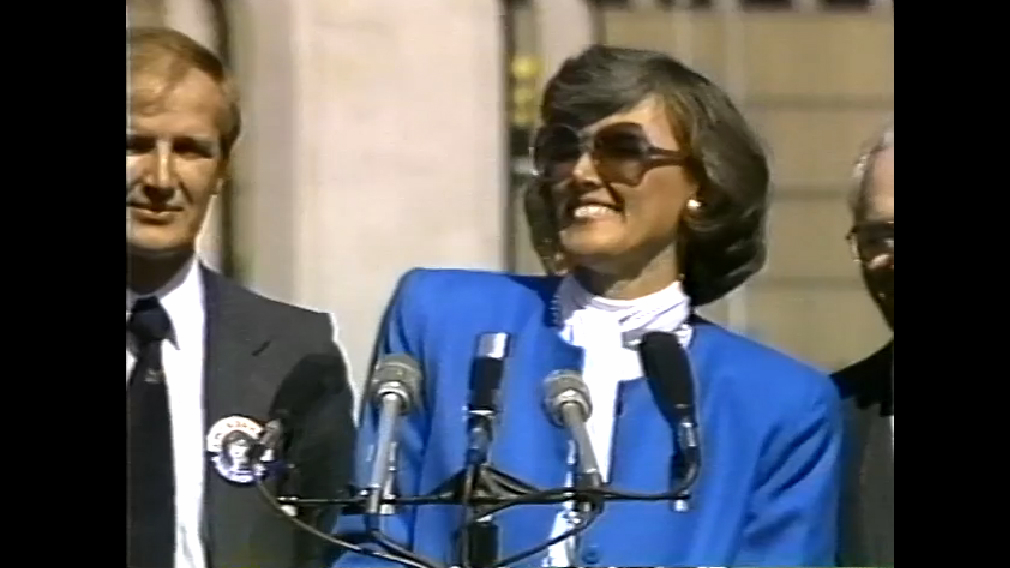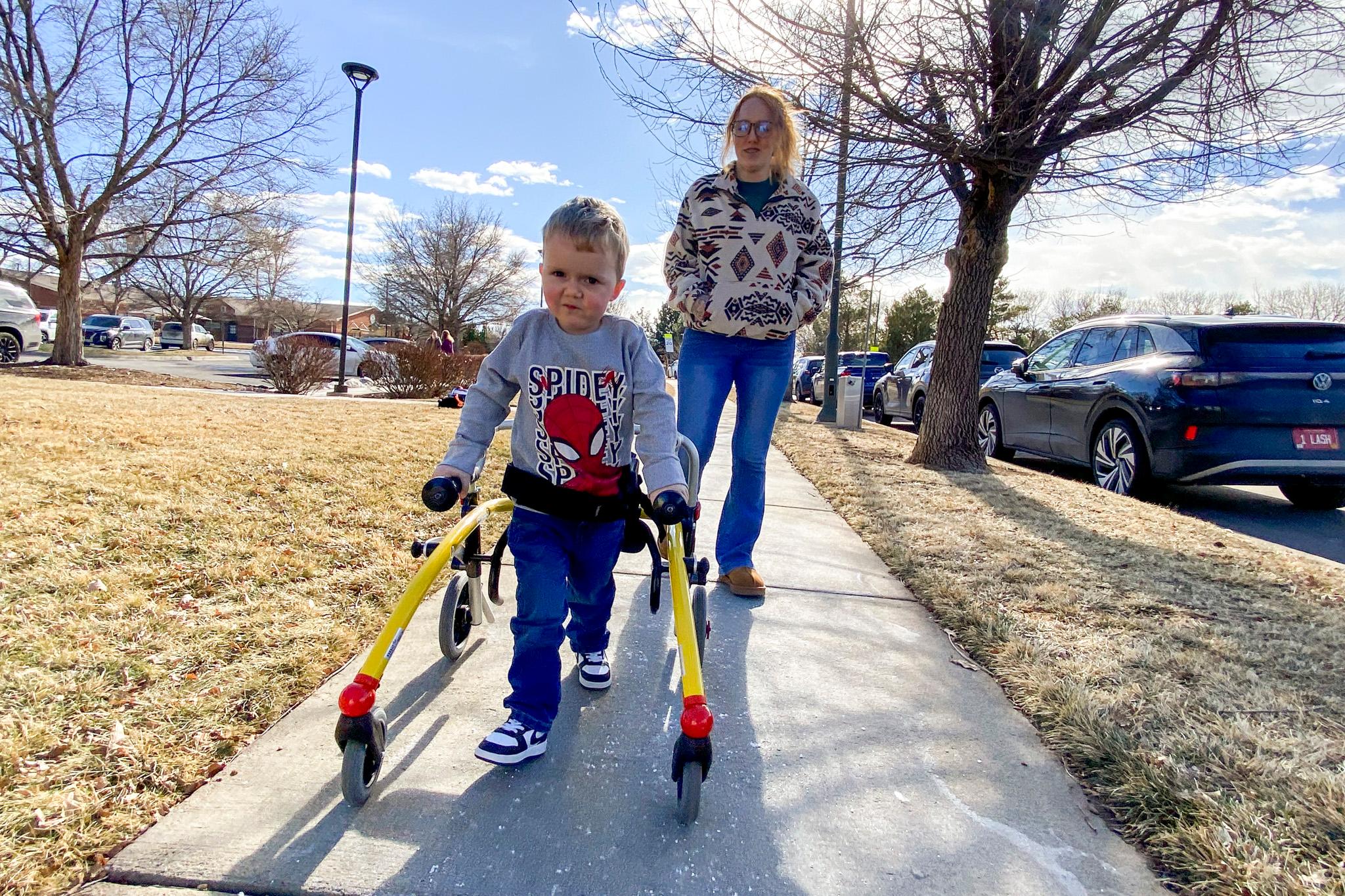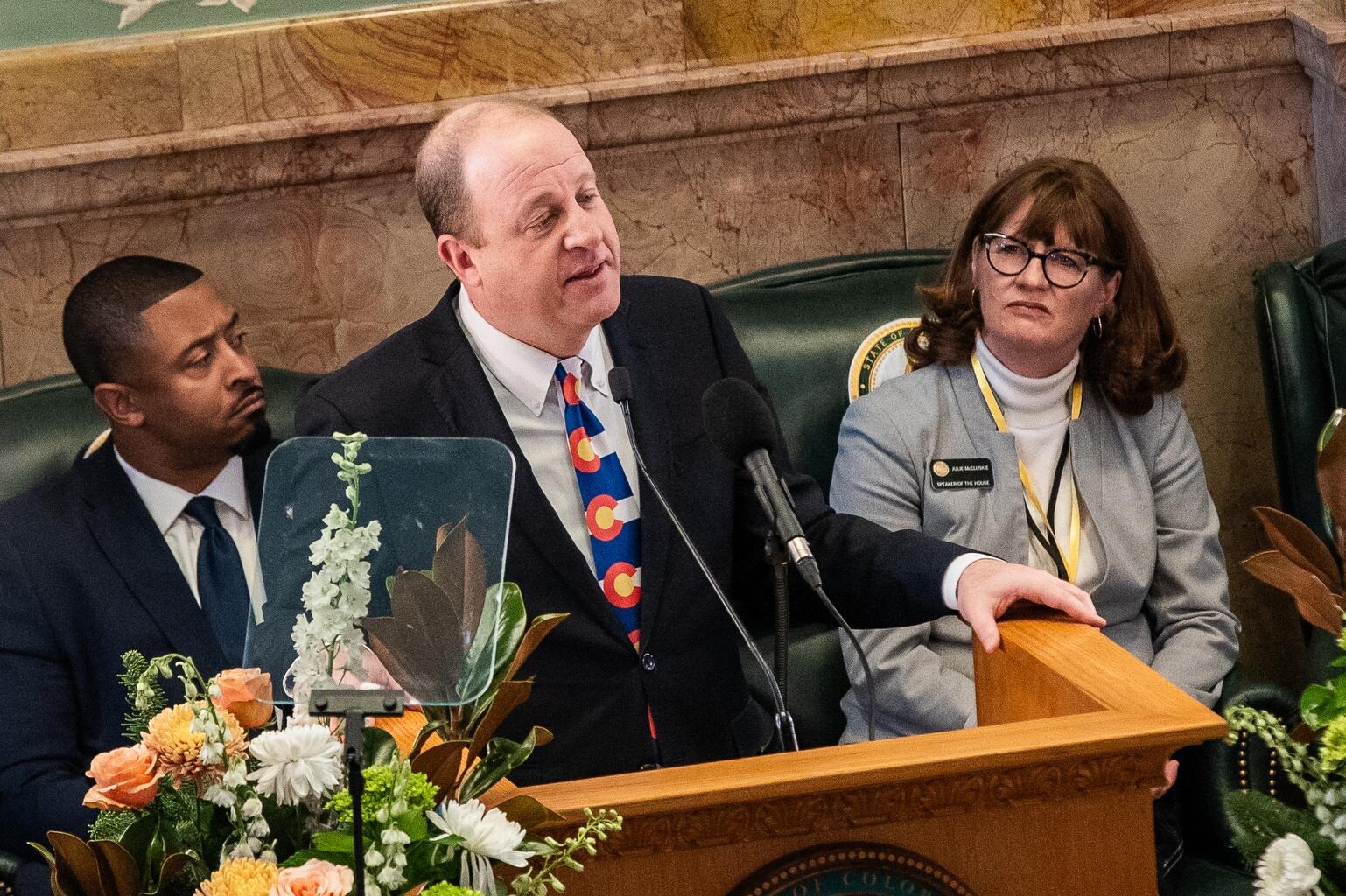

Pat Schroeder had hoped Hillary Clinton would break the glass ceiling that she herself did not – she thinks sexism was one of many factors that contributed to Clinton's loss. Schroeder explored a White House bid in 1987 after becoming the first woman elected to Congress from Colorado.
In September of that same year, recognizing she was behind in fundraising and recruiting delegates, Schroeder ended her bid with a memorable speech in Denver's Civic Center Park. She went on to serve 24 years in Congress, retiring in 1997.
Interview Highlights With Pat Schroeder
On Running For President After Ferraro’s Experience As VP Candidate
“Geraldine Ferraro, when she was running as vice-president with Mondale, I thought everyone had gotten so comfortable with that. Then, when I looked at it and I started traveling around the country and I realized how many parts of the country hadn't elected a woman to really anything, they certainly weren't going to consider a woman for president.”
On The Possibility Of Seeing A Female President In Her Lifetime
“I had always hoped but I really worry I won't now. I'm looking at the bench. There may be somebody on the bench I haven't seen, but we have two sterling new members of Congress down here that I'm very excited about.”
Read the transcript:
Ryan Warner: Congresswoman, welcome to the program. Pat Schroeder: Thank you! RW: I want to go back to the fall of 1987. This is when you decided to leave the race for president. PS: Right. RW: Did it feel like the country was very close to having a woman as a major party candidate or even president, then? Did it feel imminent, even though you were stepping out? PS: No, it didn't at all. In fact, at that time, we were getting polls showing that 25 percent of people were saying they wouldn't vote for a woman for president but the number was even higher if you asked them if they had friends that would not vote for a president. I tended to believe the second one even more. You just can't write off that big a section of the population. I believe it was Time magazine did polls and found out that I would always come out third, that I did very well on all of the statistics, did they think I was honest, did they think I was hardworking, all those things but I would still come out third among them. To me, there was no way to get over that. I had thought that, after the Ferraro experience in 1984 as vice-president... RW: After Geraldine Ferraro, running on the ballot ... PS: Geraldine Ferraro, when she was running as vice-president with Mondale, I thought everyone had gotten so comfortable with that. Then, when I looked at it and I started traveling around the country and I realized how many parts of the country hadn't elected a woman to really anything, they certainly weren't going to consider a woman for president. RW: Yeah, because when you ran for Congress in '72, it was still really unusual for women to even work full-time outside the house. PS: That's right, and there were only 14 women in the House of Representatives, and half of them had taken over and gotten elected after their husband died. So you could say, basically there were seven women there that had run in their own names. RW: It was in Civic Center Park in Denver when you announced that you wouldn't continue your run for president, because you were behind in recruiting delegates and fund-raising. Archived recording: This summer I set out to see if it was too late to mount a campaign, not a symbolic campaign, but a winning campaign for the Presidency of the United States. [Courtesy of CSPAN] RW: The image of the press conference is enduring because of what happened about half-way through. Archived recording: This has been a very difficult decision because of the incredible encouragement you've all given me, and I know your courage, your commitment, your vision, and your vitality are the American Dream. [Courtesy of CSPAN] RW: We can hear you choking up, Pat Schroeder. PS: Right. RW: You had to pause, your husband came over to offer some comfort. You got some criticism for that, including from some women who said it made women look weak. PS: Oh, man, did I ever. Did I ever. Actually, it's interesting, because what has happened during this campaign is that the Hillary campaign hasn't had time to talk to a lot of the foreign press, so they've sent them over here. The Dutch came in and did a big long thing and they found the woman who had written the most scathing editorial you've ever seen about "Congresswoman Schroeder has set back women in America for at least 50 years because she shed some tears," and on and on and on. They found her and interviewed her. She now says she wishes they hadn't done that, she was over-reacting. But it became, who could lecture me the most on that. Yet, men were weeping all the time. The sports guys, the new new, President Reagan. Really, it was kind of a different standard. I always said, "Maybe I should get Kleenex to be my corporate sponsor." I also used to say, "I'll debate anybody; I don't want anybody's finger on the button who doesn't cry. If you want somebody's finger on the button that doesn't cry, let's debate." RW: Did you actually keep a file, I understand of male politicians who cried? PS: I did. I kept a file for a very long time. Yes, I have a whole file, just clipping it out. Remember Boehner, who was the recent Speaker of the House? RW: John Boehner. PS: He used to choke up constantly, and I kept waiting for these scathing things about how he had ruined men's chances for the rest of the century. RW: What was interesting is it was in such stark contrast to who you are, a tough woman who got a pilot's license at 15, went through Harvard Law with a class that was almost entirely male. One of my favorite quotes of yours, when you were asked how you could be a Congresswoman and a mother, you said, "I have a brain and a uterus. I use both." PS: Yep. That was my, unfortunately, may your words be tender and juicy; I had to eat them a lot. RW: You are 76, is that right? PS: That's correct. RW: Do you think you will see a female president in your lifetime, Pat Schroeder? PS: I had always hoped but I really worry I won't now. I'm looking at the bench. There may be somebody on the bench I haven't seen, but we have two sterling new members of Congress down here that I'm very excited about. RW: You're in Florida. PS: That's Stephanie Murphy. Yes. She was a Vietnamese immigrant. There are pictures of the Navy picking up her family in a boat when she was a baby. Val Demings, who is an African-American, who has been a sheriff down here and a fabulous candidate, too. So we've got three down here, but outside of that, I can't see much to get excited about. RW: Thanks for being with us. PS: Thank you |









